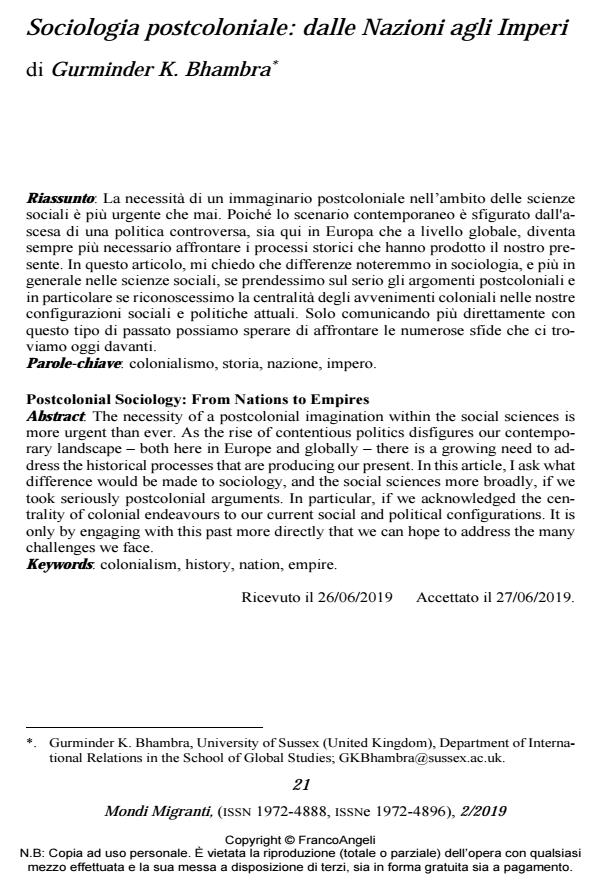Postcolonial Sociology: From Nations to Empires
Journal title MONDI MIGRANTI
Author/s Gurminder K. Bhambra
Publishing Year 2019 Issue 2019/2
Language Italian Pages 17 P. 21-37 File size 175 KB
DOI 10.3280/MM2019-002002
DOI is like a bar code for intellectual property: to have more infomation
click here
Below, you can see the article first page
If you want to buy this article in PDF format, you can do it, following the instructions to buy download credits

FrancoAngeli is member of Publishers International Linking Association, Inc (PILA), a not-for-profit association which run the CrossRef service enabling links to and from online scholarly content.
The necessity of a postcolonial imagination within the social sciences is more ur-gent than ever. As the rise of contentious politics disfigures our contemporary landscape - both here in Europe and globally - there is a growing need to address the historical processes that are producing our present. In this article, I ask what difference would be made to sociology, and the social sciences more broadly, if we took seriously postcolonial arguments. In particular, if we acknowledged the cen-trality of colonial endeavours to our current social and political configurations. It is only by engaging with this past more directly that we can hope to address the many challenges we face.
Keywords: Colonialism, history, nation, empire.
Gurminder K. Bhambra, Sociologia postcoloniale: dalle Nazioni agli Imperi in "MONDI MIGRANTI" 2/2019, pp 21-37, DOI: 10.3280/MM2019-002002